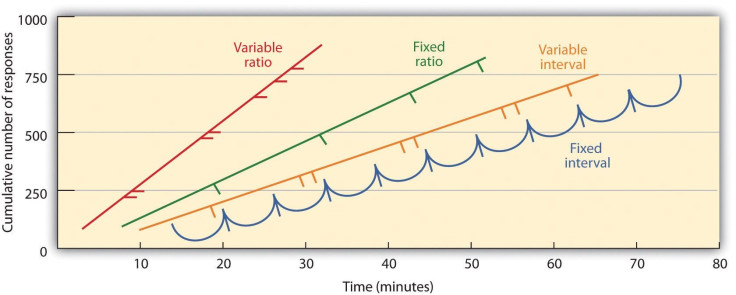What Are Some Brain Hacks That A Neuroscientist Or Psychologist Knows That Most People Don't?


Understanding the mammalian brain and nervous system makes it possible to (harmlessly) control the behavior of people and animals using the principles of "operant conditioning" laid down by behaviorists. What are the benefits? You can keep your sex life exciting, change your partner’s perception of you from predictable to intriguing, make the children do chores around the house, eat their greens and always say "Thank you" and "I’m sorry," and successfully teach your pets toileting skills or fun tricks.
Humans’ and other mammals’ brains are extremely responsive to external modification of behavior using either reflexive associations (classical conditioning — just think of Pavlov’s dog), or rewards and punishments (operant conditioning — surely you’ve heard of rats getting electric shocks if they didn’t push a lever). The mammalian brain in rats, cats, dogs, monkeys, and humans is built on similar lines, and neurons work pretty much in the same way. Even the cleverest people will struggle to realize their behaviour is being shaped by someone observing them and pulling invisible strings.
TRY THIS SIMPLE TEST:
Ask your friend to randomly state a series of words. Choose a particular category but don’t tell your friend what it is. Whenever your friend gives an example of this category (colors, numbers, proper names), say “Great. Wonderful!” Otherwise say nothing. Within a brief time, your friend should be giving mostly examples of your chosen category.
Why does it work? You have "rewarded" your friend by praise when they said what you wanted them to say, and "punished" them by your indifference, lack of reaction, when they failed to offer the correct answers.
The trick shows how operant conditioning works. It is useful in gently steering people toward the goals considered universally beneficial for all members of the same group, e.g. family, but the key to success in behavior modification is the frequency with which we "administer" the rewards and punishments, not simply carrying the acts of conditioning.

Fixed interval – blue line
Logically, it would make sense to assume that, if we want expected results every time, we should always reward good/gratifying behavior, and always punish the opposite reaction. Not so, according to behaviorists. Have you noticed that, if you treat someone every time they deliver, their interest gradually diminishes? Predictability is not a good motivator. Just think of what happens to children who get what they want every time, or what little effect your compliment has on your partner if you deliver it too frequently? What happens to the bedroom dynamics after sex becomes a highly regular, comfortable activity on a list of things to do before falling asleep? How motivated is our behavior then? The number of our responses to the stimuli (e.g. sweets, praise, sex) becomes lower and lower until, one day, it may actually become extinguished. We may stop responding.
Variable ratio – red line
The best way to ensure someone’s interest in our behavior modification game is rewarding them not in regular intervals (every time, every Saturday, etc.) but in irregular ratio patterns so that they know it will happen — life shows it does happen — but they don’t know when. If you want your child to learn to always say "Thank you," if you want your cat to always come home after you’ve shaken the dry food box, if you want your partner to always be excited about what the evening might bring in the bedroom, reward them occasionally, without any predictable pattern to keep their interest high. This is not to be confused with being mean; occasional rewarding is actually good for your relationship with your partner, child(ren), friends, neighbors, pet(s), etc. It keeps the relationships fresh and under control, should you wish to think of them that way.
Finally, think of gambling or any form of dependency. Why do people become addicted to social media platforms, such as Facebook or Quora? The very high and steady response rate (time spent online) is due to not knowing when your post, answer, picture, will get likes/upvotes/great comments. The activity of following other people is rewarding in itself, but the fact that some of us spent disproportionally high amounts of time online shows that our behavior can be modified in response to someone’s prediction about how people would respond to their idea. Social media are not successful because people like other people, but because people’s time spent online can be predicted and controlled. And this doesn’t start or end with social media. BF Skinner told us that long time ago.
More from Quora:



























